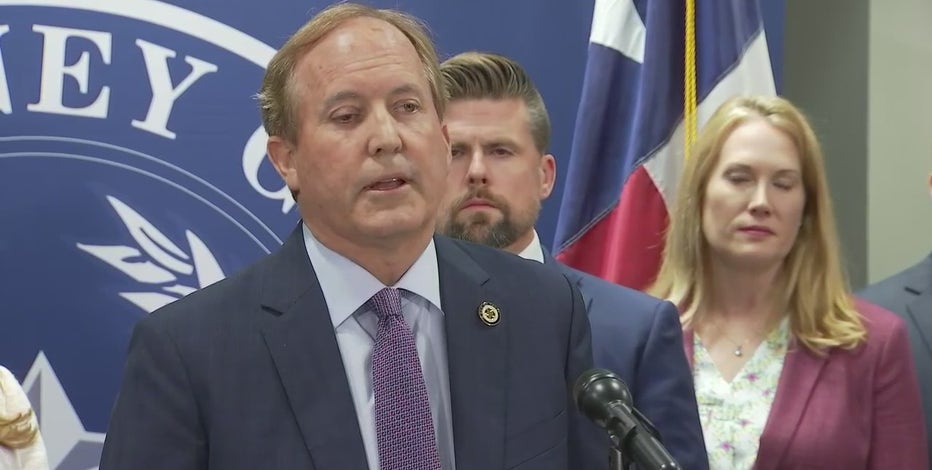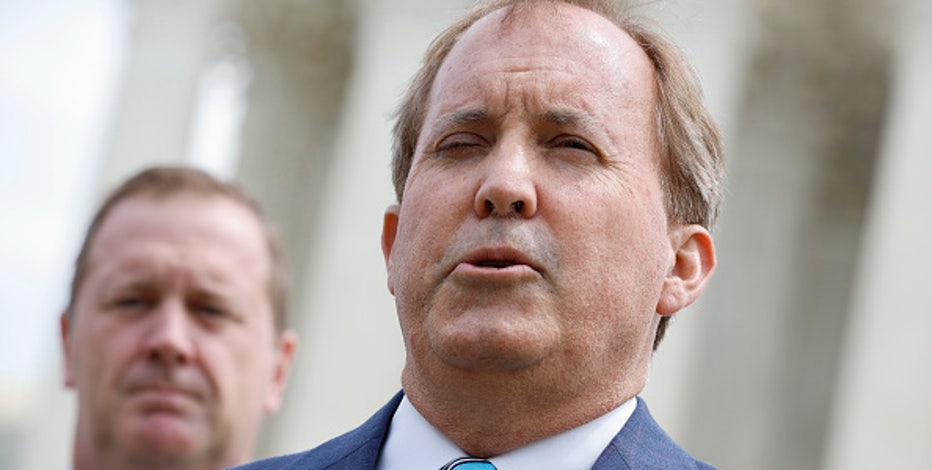AG Paxton's team says impeachment would violate Texas law, but committee says it doesn't apply here

Committee calls Paxton's legal impeachment theory 'bunk'
Texas Attorney General Ken Paxton’s team claims impeaching him based on the allegations of the proposed $3.3 million whistleblower settlement with former employees would violate state law. But the committee investigating him said Paxton's legal theory is "bunk."
AUSTIN, Texas - Texas Attorney General Ken Paxton’s team claims impeaching him based on the allegations of the proposed $3.3 million whistleblower settlement with former employees would violate state law.
But the committee investigating him said Paxton's legal theory is "bunk."
While the attorney general made more of a political argument for keeping him in office in his statement Friday afternoon, one of his top lieutenants has been making the rounds, pointing to a specific statute they claim covers Paxton.
The Texas House has only impeached a sitting official twice: a state judge in 1975 and Governor "Pa" Ferguson in 1917.
And now, AG Paxton’s team is trying to argue it’s against the law to make him the third.
"It is not too late for the House to do the right thing and end this impeachment, which violates Texas law, including Texas Government Code 665.081," said Chris Hilton, litigation chief for the Texas Attorney General’s Office.
The Texas statute Paxton’s lieutenant mentioned says that: "An officer in this state may not be removed from office for an act the officer may have committed before the officer's election to office."
Allegations against Paxton are tied to his time in office.
He was first elected to the job in 2014, but his team argues he’s shielded by the law since he was re-elected in November, after the alleged wrong doing.
"Texans knew about all of these allegations in the last election, and they rejected them by a margin of 10 percentage points," Hilton said.
Legal expert David Coale said the statute applies to removing some lower level officers from office, and a statute cannot strip away powers the Texas Constitution grants the legislature.
"I think the history there and the structure of our Constitution are against him," Coale said. "Just like the U.S. government, all the legislature can do is add on to the constitutional framework. It can't take things away and it's added on to it over the years. It's added other ways of removing officers and it's added some procedures to facilitate the impeachment process…what the legislature can't do is take away what's already in the Constitution. You have to have a constitutional amendment to do that.
In its memo announcing Saturday’s impeachment vote, the committee investigating Paxton addressed the legal theory, saying "it does not apply to impeachment. The Texas Supreme Court has held that this provision does not apply when the Texas Constitution authorizes a procedure for removing a state officer."
Unlike the U.S. government process, the Texas Constitution states that Paxton would be suspended once impeached while he awaits trial by the state Senate.
Coale said Paxton could go to a court, even directly to the Texas Supreme Court to seeking an injunction, but he has a tough argument to make.
"At the end of the day, it's a hard sell to think that the legislature could just one day amend away a very important part of the constitutional check and balance of impeachment," Coale explained.
In addition to impeachment, Paxton still has not gone to trial for securities fraud charges.
He was indicted back in 2015.



